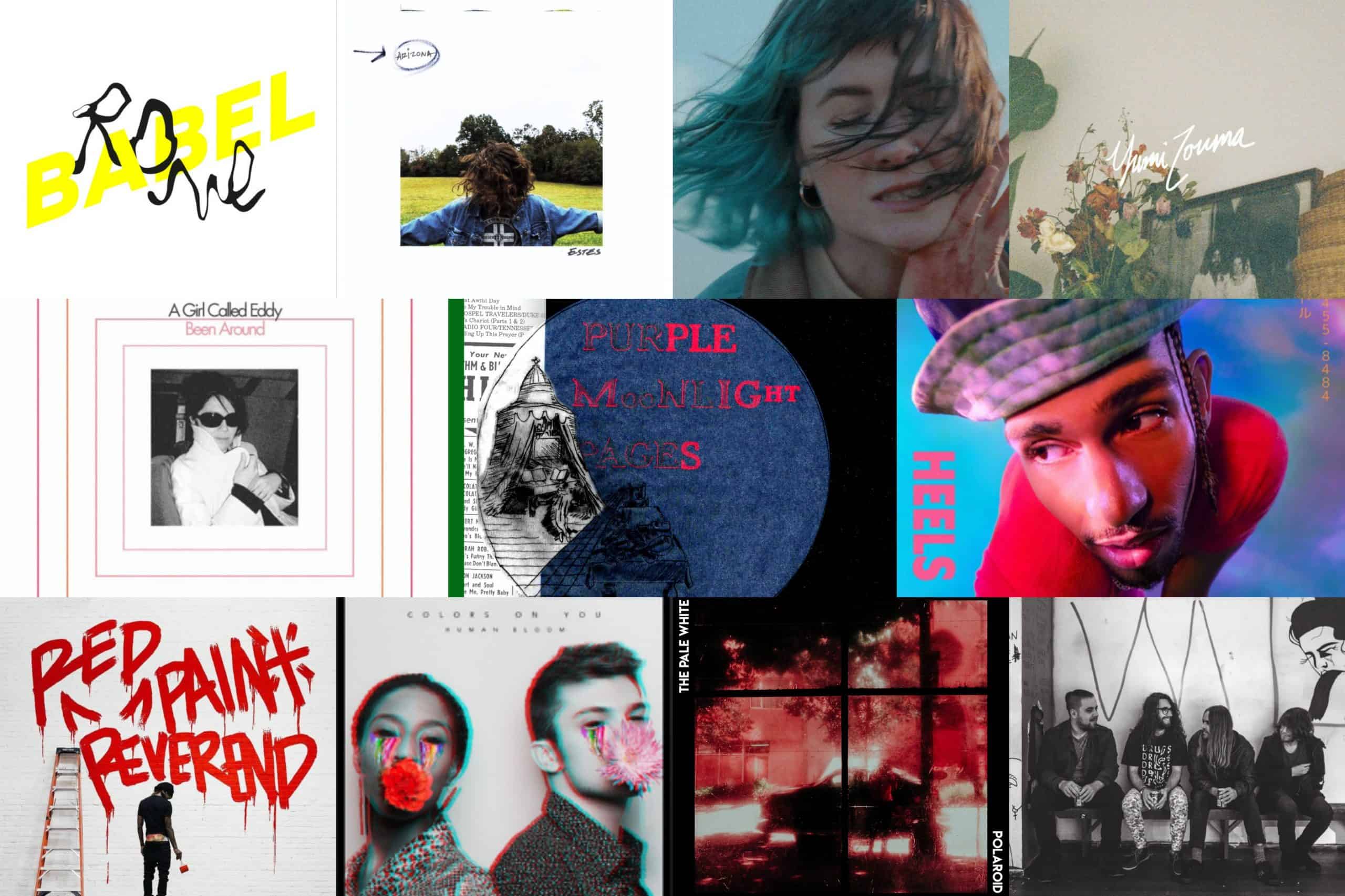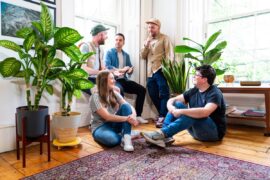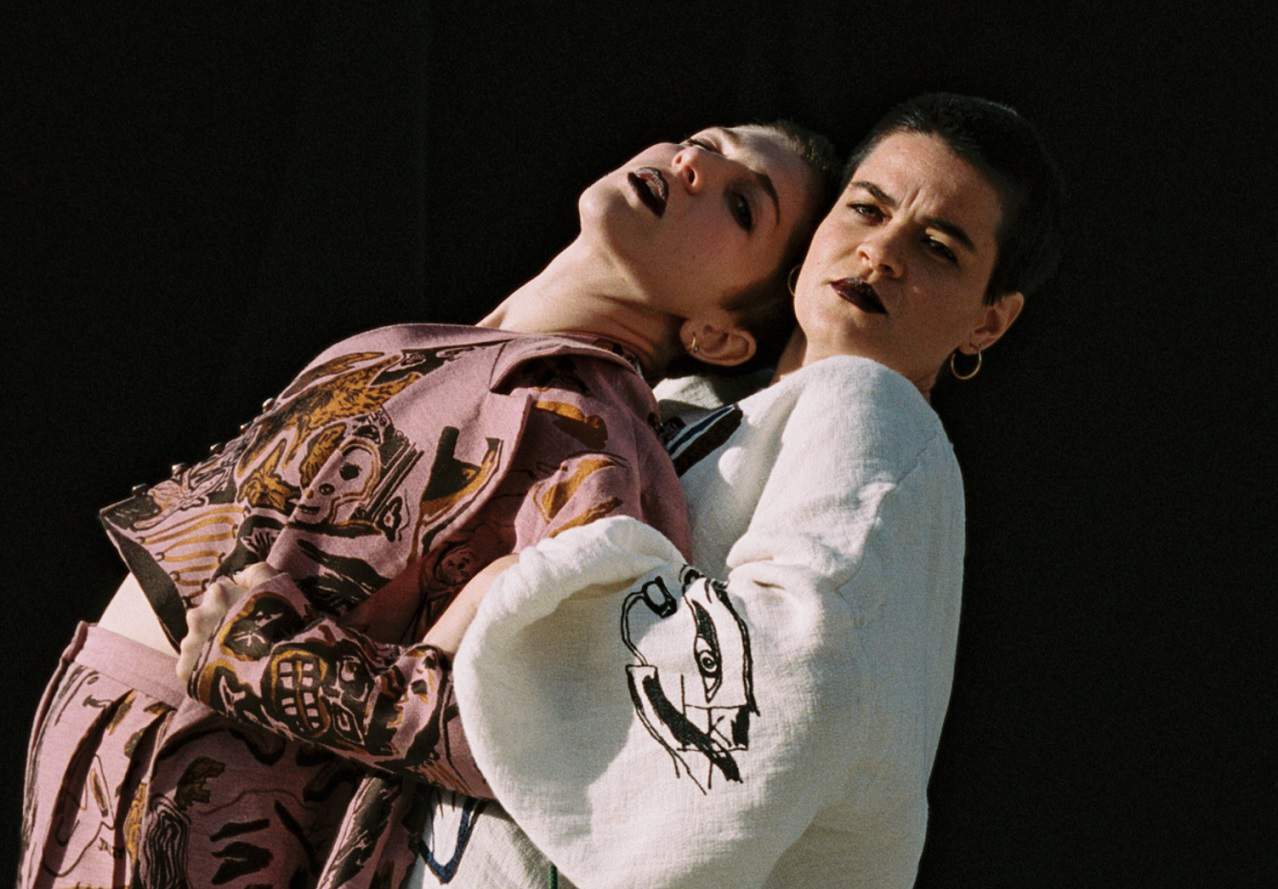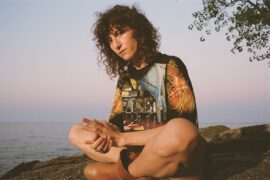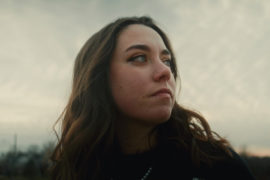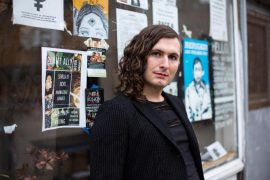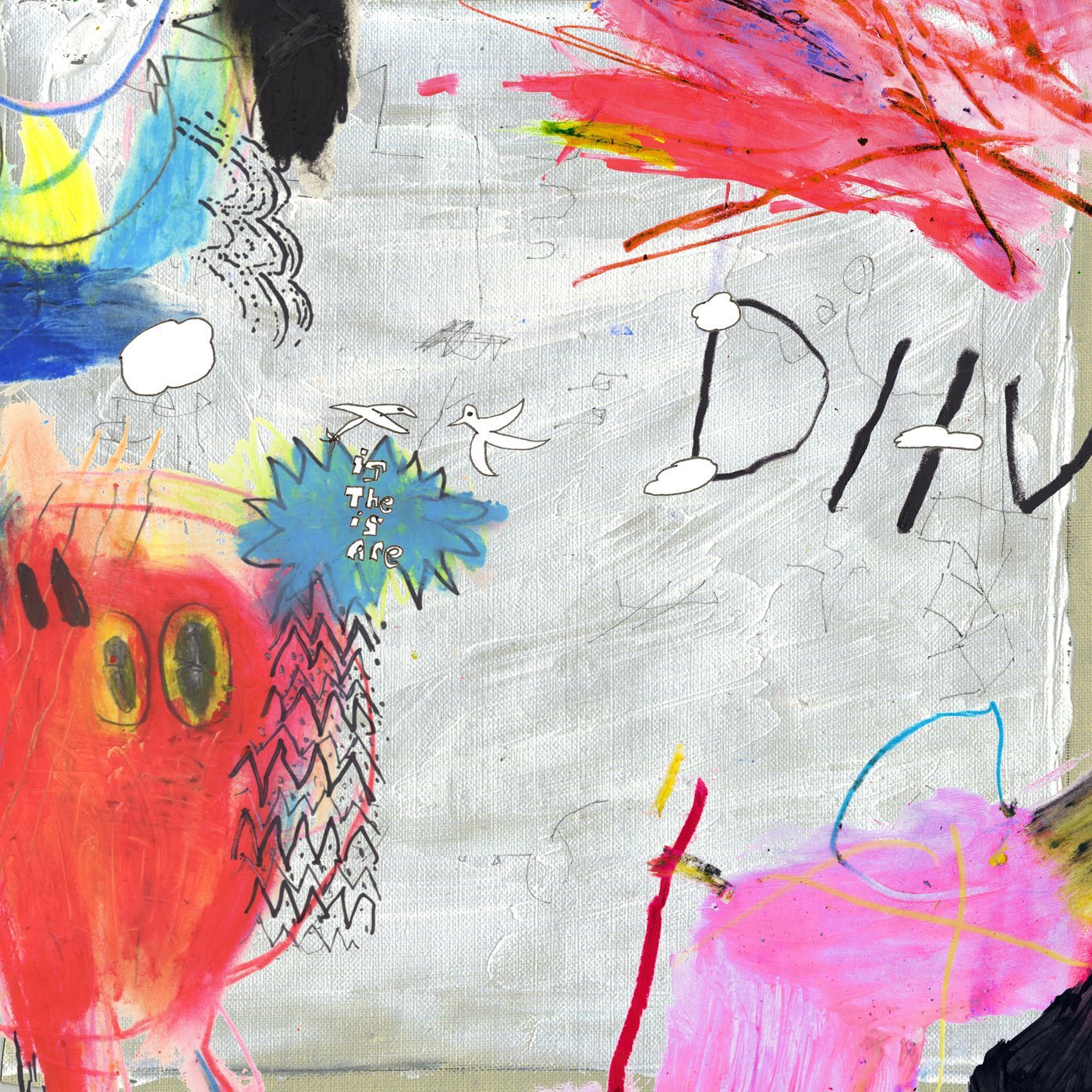In honor of Pride Month, Atwood Magazine has invited artists to participate in a series of essays reflecting on identity, music, culture, inclusion, and more.
•• •• •• ••
Today, Samantha Bowers of Brooklyn collective Sammy Rae & The Friends shares her essay, “Permission to Be Exactly Who You Are,” expressing her thoughts on the queer experience, its impact on her music, and the importance of accepting and loving your authentic self, as a part of Atwood Magazine’s Pride Month series!
For as much as Sammy Rae & The Friends may be a band, this collective of, dreamers, and artists considers itself a family first.
Fronted by singer and songwriter Sammy Rae, the Brooklyn-based ensemble flourishes in any spotlight with a combination of all-for-one and one-for-all camaraderie, palpable chemistry, deft virtuosity, and vocal fireworks. Their sound is a mélange of Sammy’s influences, rooted in classic rock, folk, and funk and sprinkled with soul and jazz. Complete with a rhythm section, two saxophones, keyboards, and plenty of percussion, Sammy Rae & The Friends have delivered their high-energy, spirited, and unrestrained shows to sold-out audiences and festival crowds from North America to the UK. They recently announced 2023 summer festival appearances, including Bonnaroo, XPoNential Music Fest, Sound on Sound, and Green River Fest, as well as another major fall headline tour.
While the band considers themselves the “7 faces of The Friends,” they advocate for the importance of their community. Avid music fans themselves, they pride themselves on this original grassroots, word-of-mouth growth. The Friends is their community of followers, artists and creatives who help in the creation of their songs and sustenance of the project—their mixing engineer, band photographer, graphic designer, budget manager, and everyone who hangs around the shows supporting the vision. The shows are like a shot in the arm of affirmation of individuality. They are safe spaces to feel overwhelmed with love and acceptance. “Friends” in the audience are encouraged to dress how they like, dance how they like, join the party and form person-to-person Friendships.
The Mantra of the Friday: GO PUT A SMILE ON SOMEBODY’S FACE, GO TELL SOMEBODY THEY’VE GOT A PLACE IN THIS WORLD, GO TELL SOMEBODY YOU WANNA BE FRIENDS WITH THEM.
•• ••
“PERMISSION TO BE EXACTLY WHO YOU ARE”
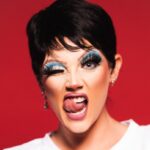
by Samantha Bowers
You have to be yourself as hard as you can, as young as you can.
To me, ‘Pride’ means permission to be myself.
Queerness is so much deeper than gender identity and sexual orientation. While this is a part of the queer experience, being queer is also about self-love and self-permission! It’s about walking through the world in earnest, constantly expanding your worldview, and reveling in your authentic self expression. It’s about being who you are. I knew I was queer from the time I was a child, but I didn’t give myself permission to talk about that with friends and family, or fully be myself, until I was about 25. I had a hard time watching other people celebrate who they were, especially during Pride Month. I was also very intimidated by what my family would think. Even though they had never made me feel threatened, or like I couldn’t be openly queer around them (and they were hugely supportive of me from the moment I came out to them) I had a lot of internalized homophobia instilled in me by the church, the media, and generally the world. I grew up in a very small town in Connecticut, with no professional musicians or queer folk anywhere to look up to or connect with. I felt different, and I always had a feeling I’d end up somewhere like New York.
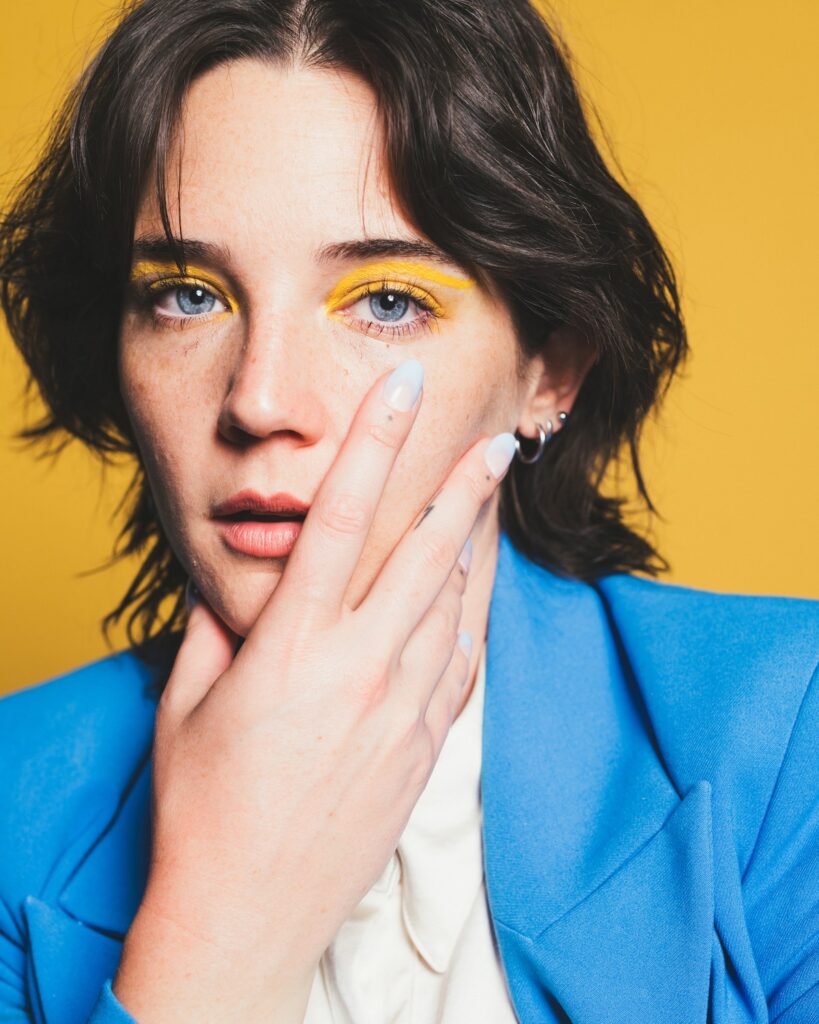
I started writing songs when I was about 12. Around that time, my parents had a few CD’s they played on repeat, the bands I remember most vividly are ACDC, Bruce Springsteen & The E Street Band, Tom Petty and Fleetwood Mac. I come from classic rock, and I come from bands. I was always inspired by bands. I come from a lot of male rockstars, and I’ve been able to figure out why they so inspired me as I got older and a little more confident in my queerness.
I didn’t feel safe to write songs about girls I liked, but I didn’t have to. Because Tom Petty had already done that.
I was so inspired by the fashion sense and melodrama and lyrics of male rockstars, and listening to their music felt like a safe place to revel in my feelings about beautiful women and longing and melancholy. Women in rock (at least those I was exposed to at that age) never really resonated with me too much, because a lot of their branding was their sex appeal. As an awkward ‘good’ kid, I felt safer wishing I was John Cougar Mellencamp in a flannel pretending I was Jack, dreaming about Diane. Skipping ahead a few years, I think I actively muted my femininity a bit to detract from my sex appeal…a defense mechanism for a really killing singer who wanted to be taken seriously in the industry.
I took piano lessons for a brief period of time when I was little-little, like 4 to 8, and then fell off it. I started to pick it back up again by ear around 12, and also found the ukulele around age 15. I was attracted to the concept of writing songs as a ‘safe’ way to express my emotions with metaphor and analogy. I could be as vague to the listener as I wanted and still get my feelings out, but protect myself. I could write my own version of things that happened to me, or never happened to me. I loved that idea.
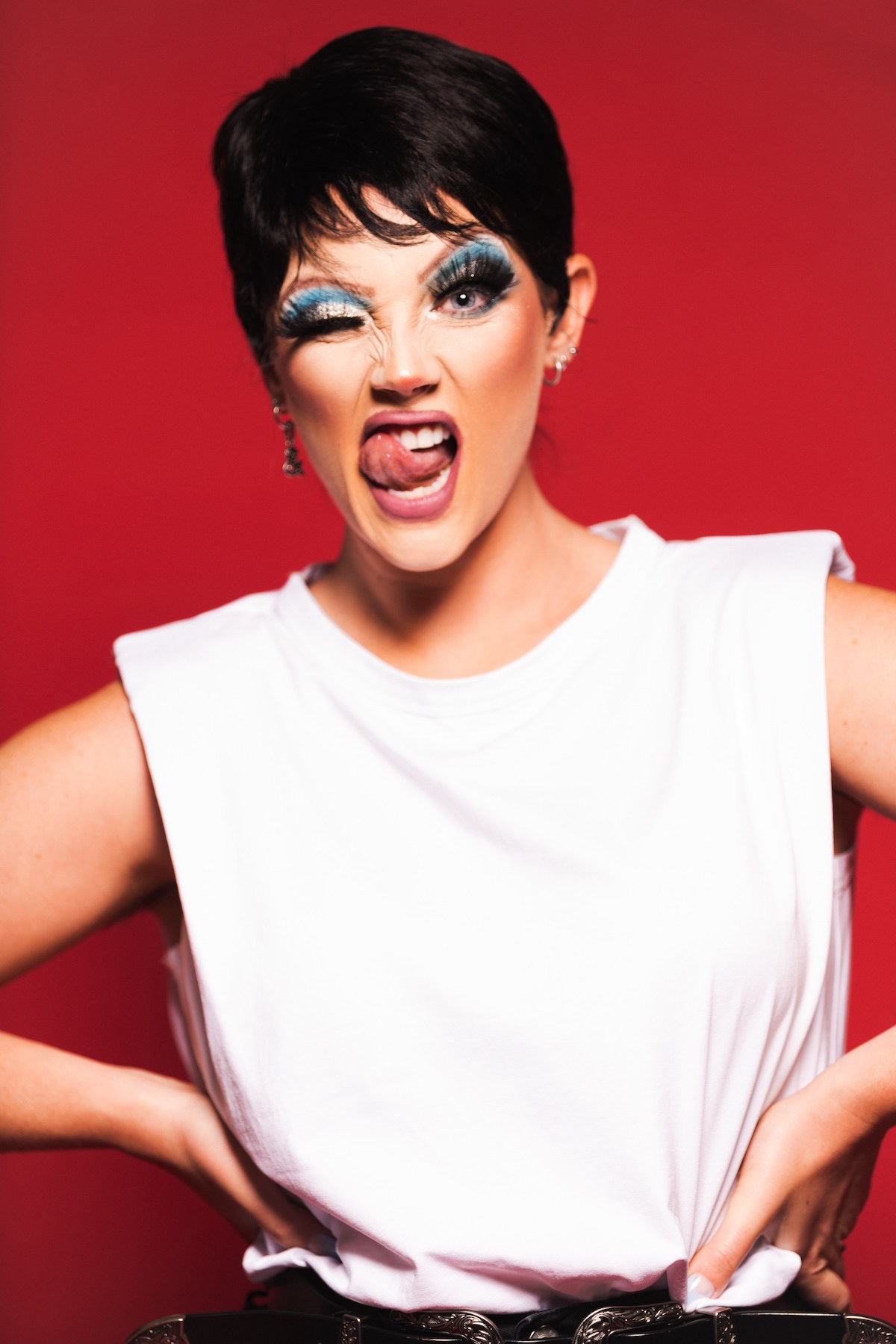
At age 19 I moved to New York and started to make my dream of leading an original band my only priority, going to every open mic and jam session and free show I could find and meeting players. I would really like a player’s work at a show and wait for them after the show so I could invite them to coffee and pick their brains. If I really liked them, I’d ask them to come workshop some tunes with me or join the band for a minute. Some players stuck, and others left after one gig. I was zealous, and I’m sure a lot of people didn’t know what to do with me. I didn’t really know what to do with me. Eventually I had a few good arrangements, a few good players and a few good shows.
I never took no for an answer, from any venue or any studio. I would show up dressed like the sound guy with my 6 male band members behind me and do the only thing I knew how to; be myself really hard and really loud. I distinctly remember one venue not believing me when I said I was the front person when I showed up for load in. They made some misogynistic comments. I never returned. I never let my being a woman or being queer or being young or being unknown stand in the way of putting on a great show, or finding some sort of loop-hole contact for the venue I was looking to get into. The audience seemed to get it, even in venues didn’t at first, and the next thing we knew we were selling out every NYC show. The songs, our talent, and the ticket sales spoke for themselves. That sense of accomplishment started to embolden me to stand a little more firmly in my identity as a queer person. While I kept some of it under wraps, I think the audience caught on. At age 25 I decided to start openly talking about my identity, and that sense of freedom that only NYC could bring me manifested itself in a more joyful life, and an outpouring of music. My queerness influences every aspect of my music, from what I write to how I deliver it and what I wear onstage and so on.
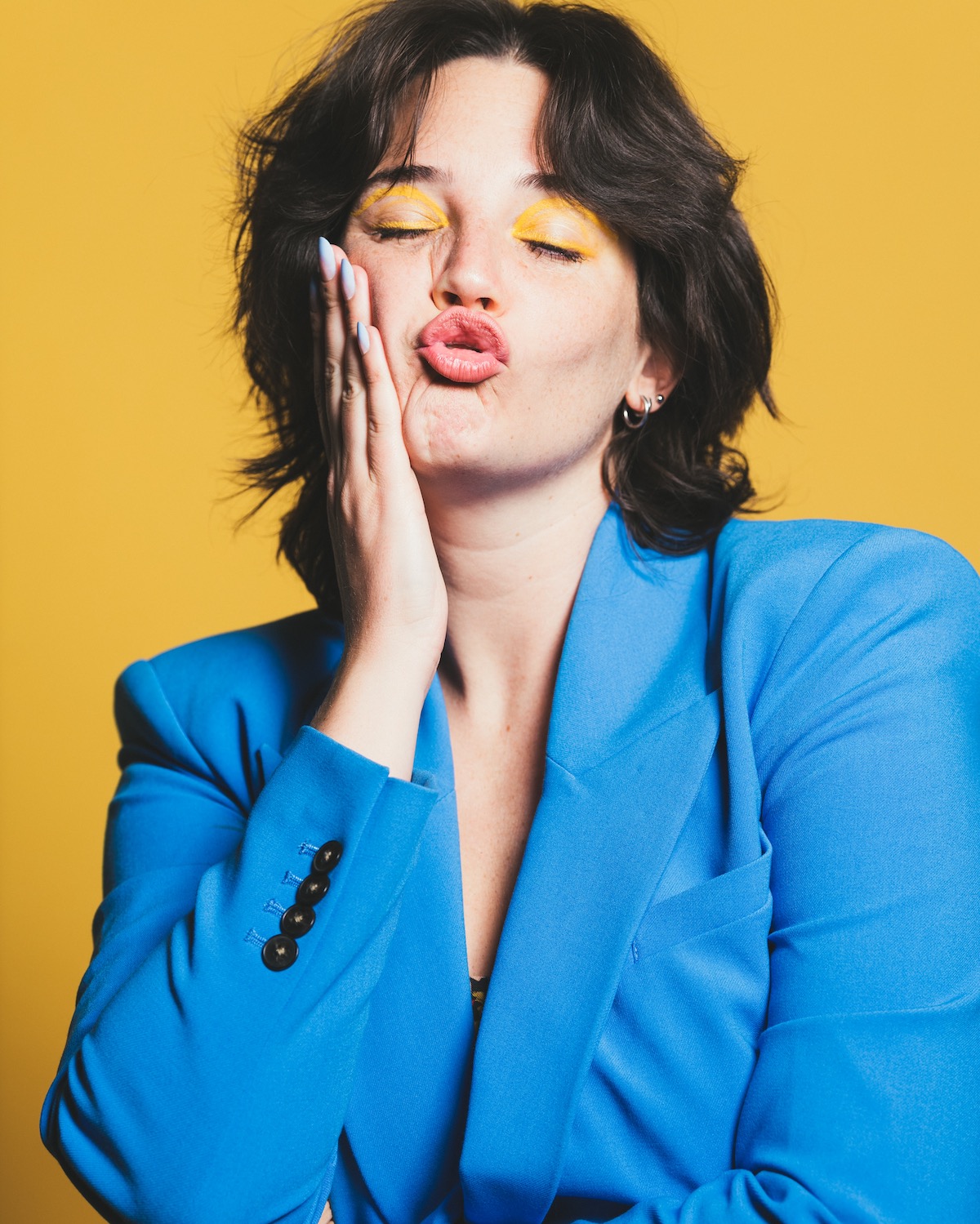
It’s difficult to give advice to young queer musicians starting out, or young queer people in general.
I can tell you that once I gave myself the freedom to stand in my authentic self as a queer woman and artist, I started to attract all the things in life I had ever wanted; good friends, meaningful work that fulfilled me, musical inspiration, body positivity, and healthy and beautiful love relationships. It’s hard to give someone advice on how to overcome fear they might have about being their authentic self as a queer person, because that experience looks very different on everyone. Some people live in locations and situations where they are at risk of losing their jobs, homes, or family if they were to come out.
While gay marriage has been legal in the United States since 2015 in all 50 states, I want to reiterate that queerness is so much deeper than that. While the right to love who you want is there in law, there is so much discrimination, exclusion and hate which is implied socially and politically.
The easiest way to make the world a better place is to be yourself so loudly, and stand so firm in your joy, that it encourages others to be themselves and stand in their joy.
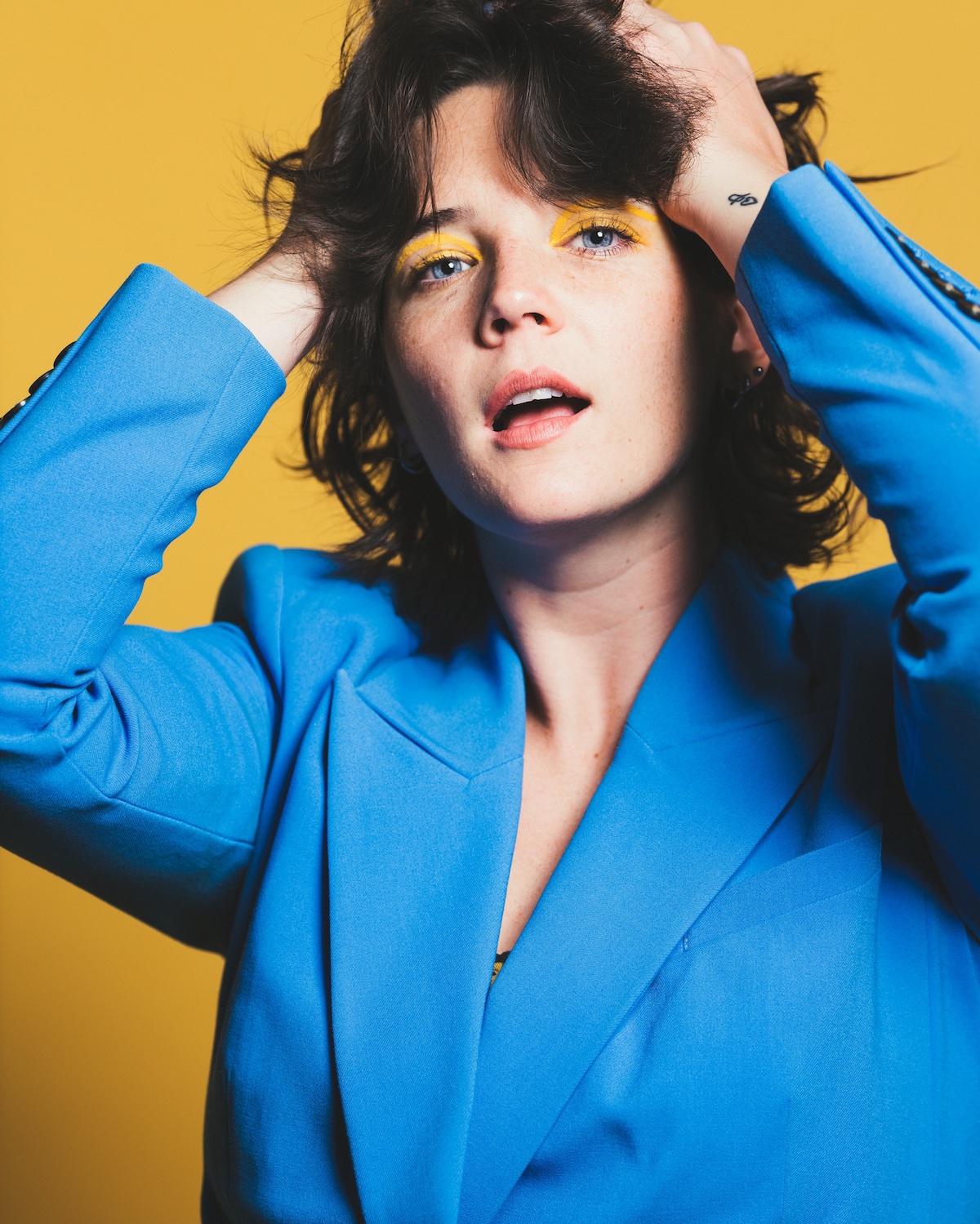
I would say this: You have to be yourself as hard as you can, as young as you can. Otherwise, you will spend your whole life frustrated that you cant achieve the ultimately unattainable goal of being someone else. The easiest way to make the world a better place is to be yourself so loudly, and stand so firm in your joy, that it encourages others to be themselves and stand in their joy. Imagine a world where people stop pretending, and just exist. You are allowed to be who you are. While you may not always feel that way, you are allowed to be the most joyful and full version of yourself.
Unfortunately, some people who aren’t comfortable enough with themselves won’t understand that. Your joy will unsettle them. There are people out there who understand and love you. You just need to look for them. And you can’t attract the people, the opportunities, or the energy that you truly want, unless you put your true self out there. – Samantha Bowers
— —
:: connect with Sammy Rae & The Friends here ::
— — — —

Connect to Sammy Rae & The Friends on
Facebook, Twitter, TikTok, Instagram
Discover new music on Atwood Magazine
© Mia Isabella Aguirre
:: Stream Sammy Rae & The Friends ::

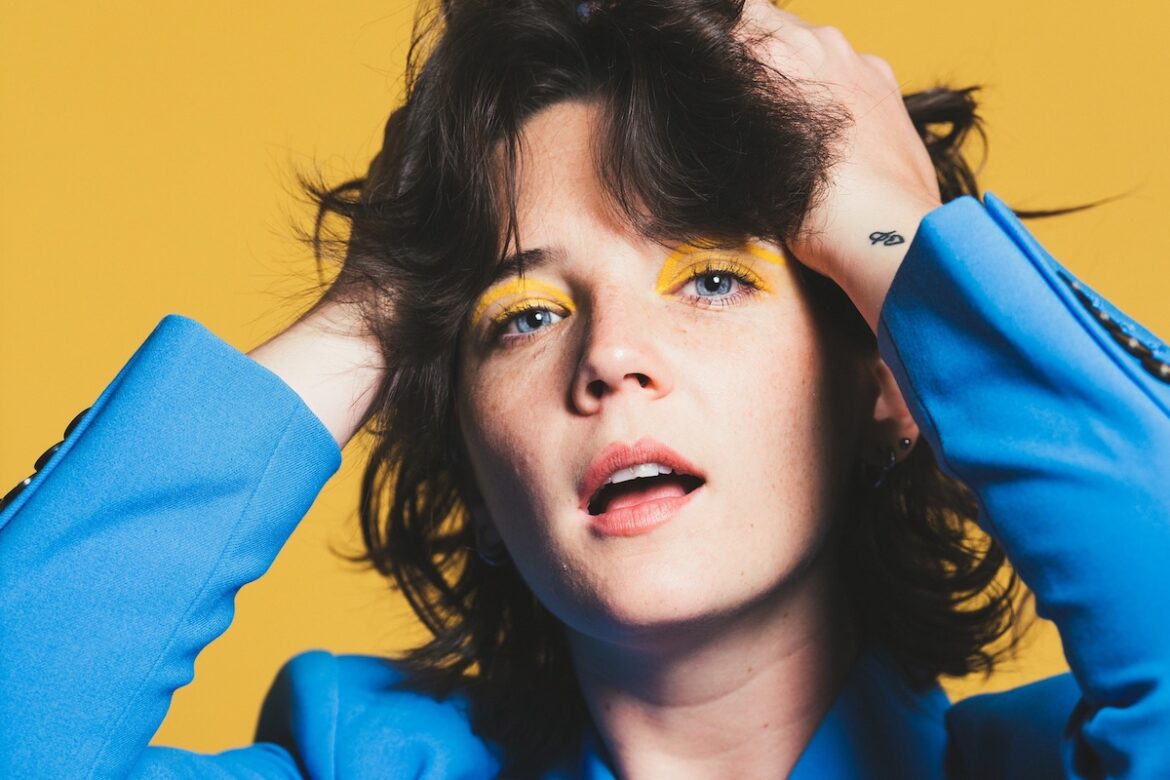
 © Mia Isabella Aguirre
© Mia Isabella Aguirre